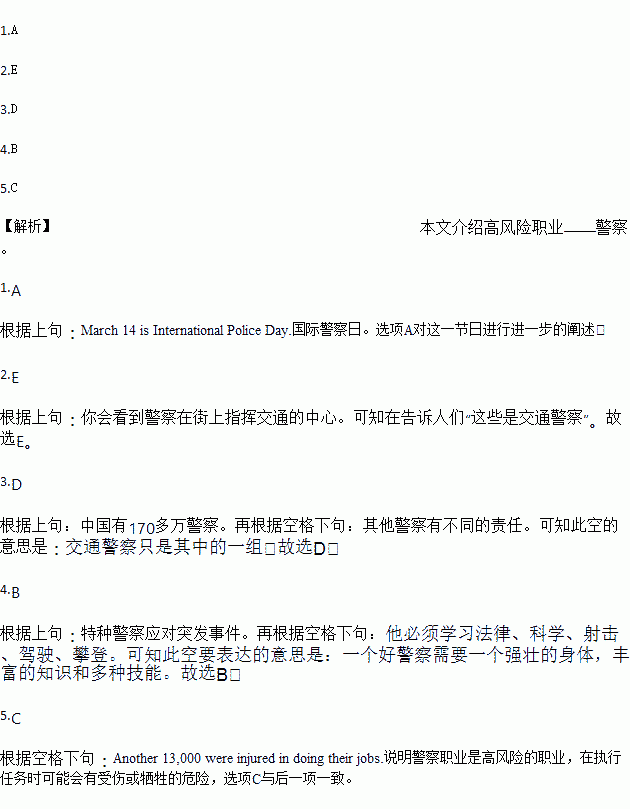题目内容
March 14 is International Police Day. 1.
No matter if it's burning hot or icy cold, a holiday or a school day, you'll see policemen at the centers of the streets directing(指挥) traffic. 2. .
There are more than 1.7 million policemen in China. 3.. Other police have different responsibilities (责任). Some are firefighters (消防员). Some watch out for bad guys and solve crimes(犯罪). Others keep the peace. Special police deals with unexpected events. 4. He has to learn laws, science, shooting, driving and climbing.
To keep people safe and make peace for all, Chinese police put their lives at risk (冒险). 5.. Another 13,000 were injured in doing their jobs.
A. It is a day for people to show their respect for police, the people who keep millions of families safe.
B. A good policeman needs a strong body, rich knowledge and many skills.
C. Since 1980, more than 7,000 policemen have lost their lives.
D. The traffic police is just one group.
E. These are the traffic police.
F. Police is a dangerous job.
G. We should love police because of their hard work.


 suddenly start up and run a mile across the plains to find out what is going on. If another animal has made a kill, they will drive it off and take the dill for themselves. A grown lion can easily eat 60 pounds of meat at a single feeding. Often they eat until it seems painful for them to lie down.
suddenly start up and run a mile across the plains to find out what is going on. If another animal has made a kill, they will drive it off and take the dill for themselves. A grown lion can easily eat 60 pounds of meat at a single feeding. Often they eat until it seems painful for them to lie down.